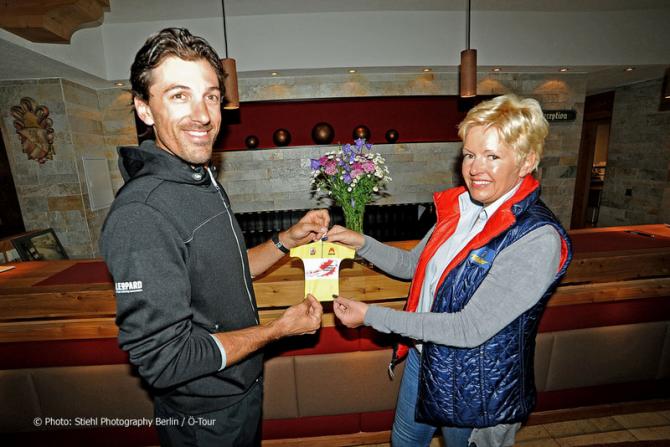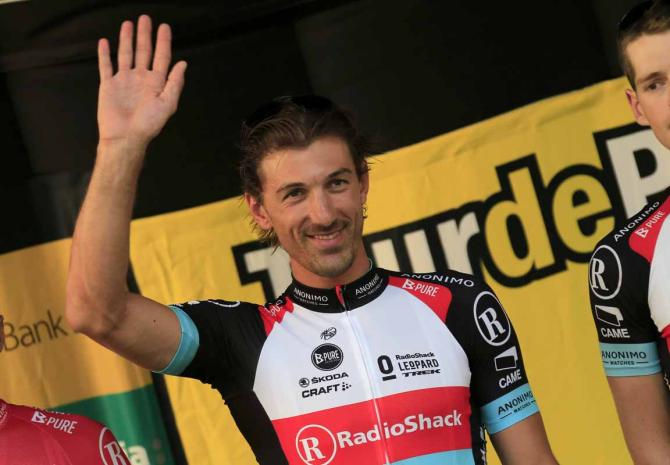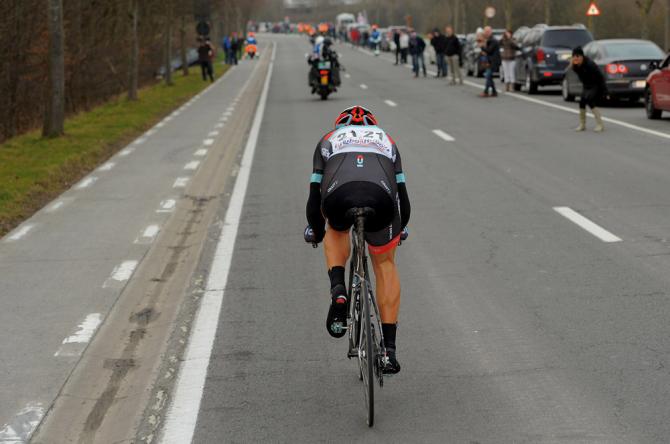Cancellara working towards 2014 hour record attempt
Guercilena on tailoring road form to the track



Renewed success in the cobbled classics may be foremost in Fabian Cancellara’s mind as the year draws to a close, but the Swiss rider has also tested material for a possible tilt at the world hour record in recent weeks. Speaking to Cyclingnews during the revamped Trek Factory Racing team's recent training camp in Calpe, manager Luca Guercilena said that he was hopeful that Cancellara would be able to make a record attempt during the 2014 season.
“When you make an attempt on the record, it also means removing the athlete from another objective, and obviously that’s not so easy in the first season that you put a team together, especially with a rider as important as Fabian. That said, we are going ahead with tests on material and we’re looking into what might be a good period of the calendar to do it relatively soon,” Guercilena told Cyclingnews.
While riders such as Chris Boardman (1996) and Miguel Indurain (1994) used an extended window of post-Tour de France form to break the old hour record, Cancellara’s attempt would seem most likely to take place in late April, after his classics campaign comes to an end.
Unlike Boardman and Indurain, who broke the record between five and six weeks after the end of the Tour, Cancellara’s transition time from road to track could be significantly shorter. As Guercilena pointed out, the important thing is to strike a balance between adapting to the track and utilising Cancellara’s spring classics form.
“You’d need a minimum of fifteen days to adapt to the track before a record attempt: it’s unthinkable that you could do it immediately afterwards because the pedal stroke you use on the road is very different to the one you use on the track,” Guercilena said. “But clearly the most important part of a record attempt is the form, and given that we’re talking about an athlete used to time trialling, the time needed to adapt should be relatively reduced.
“The hope is to find a period of form during the year where Fabian is at 100%, translate the work he has done on the road onto the track, and then make an attempt on the record straight afterwards.”
That sharp transition from road to track ought to be alleviated by the fact that time trial bikes are, of course, outlawed for the world hour record, although Cancellara will still have some adjustments to make as he takes aim at Ondřej Sosenka’s 49.700km mark. On the other hand, Cancellara has markedly reduced his specific time trial preparation in recent seasons in order to focus more keenly on adding to his classics palmares.
The latest race content, interviews, features, reviews and expert buying guides, direct to your inbox!
“The hour record is different to a road time trial, purely because of the position on the bike,” Guercilena said. “When you take into consideration the banking and curves of the track, it’s clear that you have to alter the pedal stroke a little bit, but the basic time trialling training itself isn’t hugely different between the road and the track. Of course, you need to find time for specific sessions during the road season and then look to get the attempt itself using the shortest possible amount of time on the track.”
When Cancellara’s record attempt was first mooted last summer, the new velodrome is Grenchen, Switzerland was floated as a possible venue, although Guercilena has since mentioned Anadia (Portugal) and the high-altitude track at Aguascalientes, Mexico (where François Pervis recently broke the kilometre world record) as other potential sites. Cancellara took advantage of Trek Factory Racing’s recent training camp in Benidorm to test some material on the track in Valencia.
“It’s worth pointing out that Valencia is a cement track rather than a wooden one, but still, with the technology that’s out there today, we’re in a position where we can make an analysis and get a decent approximation of how the material will work,” Guercilena said. “We’re in the development stage but the performance itself obviously is another thing altogether. Right now we’re starting the work necessary to make an attempt on the record, and we’ll see in time whether it’s possible or not."

Barry Ryan was Head of Features at Cyclingnews. He has covered professional cycling since 2010, reporting from the Tour de France, Giro d’Italia and events from Argentina to Japan. His writing has appeared in The Independent, Procycling and Cycling Plus. He is the author of The Ascent: Sean Kelly, Stephen Roche and the Rise of Irish Cycling’s Golden Generation, published by Gill Books.